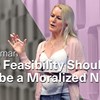loses
Edward Page: Addressing future loss and damage associated with climate change
Edward Page, Associate Professor of Political Theory, University of Warwick ABSTRACTClimate change, by damaging the quality of life of populations already suffering from acute vulnerability and hardshi the adoption of measures of mitigation and adaptation and a ‘second-order injustice’ if the associated losses and damages arise as of these measures. Both forms of injustice involve ‘losses and damages’ arising that would not have occurred but for climate change but raise distinct normative problems given their diverging origins. This research seminar explores some key normative puzzles raised by the new ethics and politics of ‘loss and damage’ as it relates to both first-order and second-order climate change injustice. In particular, the lecture focuses on which normative principles should guide measures seeking to address first-order and second-order climate change injustices experienced by states and how (if at all) new forms of policy can be designed that respect these principles.
Research seminar with Oskar Nordström Skans: The Heterogeneous Earnings Impact of Job Loss Across Workers, Establishments, and Markets
Venue: Institutet för framtidsstudier, Holländargatan 13, 4th floor, Stockholm, and online Research seminar with Oskar Nordström Skans, Professor of Economics, Uppsala University. REGISTERAbstractUsing g
Jason Beckfield: Unequal Europe: Regional Integration and the Rise of European Inequality
Jason Beckfield, Professor of Sociology at Harvard University. Abstract The Euro-crisis of 2009–2012 and the UK’s 2016 vote to leave the EU vividly demonstrated that EU policies matter for the distribut
Eva Erman: Why feasibility need not and should not be a moralized notion
Venue: Institute for Futures Studies, Holländargatan 13 in Stockholm, or online. Research seminar with Eva Erman, Professor of Political Science at Stockholm University. Her research focuses on democrat

Eva Erman: Why Feasibility Need Not and Should Not be a Moralized Notion
Research seminar with Eva Erman, Professor of Political Science at Stockholm University. Her research focuses on democratic theory, specifically on questions of democracy beyond the state, in a global
Health and Wealth: the Contribution of Welfare State Policies to Economic Growth
Unlike economic theories and strategies of the last twenty years, this paper claims that health helps to create wealth, i.e. not only the other way around. It is argued that a human capital approach w
Ethical Challenges in Using DALYs to Inform Health Interventions: Some Lessons from Population Ethics
Institute for Futures Studies. Working paper 2025:2 From the introduction The Global Burden of Disease Study (GBDS) is an international and interdisciplinary effort to quantify health losses from a wide
Chris Armstrong: Decarbonisation and World Poverty
Professor of Political Theory at the University of Southampton. ABSTRACT If dangerous climate change is to be avoided, it is clear that the majority of the world’s fossil fuel supplies cannot be burned.
Just allocation of Covid-19 vaccines
BMJ Global Health 6: e004812. 2021 ABSTRACT Authorized COVID-19 vaccines must be distributed fairly. Several proposals have emerged offering guidelines for how to do this. However, insofar as the aim is A total of 182 countries have joined the facility so far, which has secured about US$2 billion for its advance market commitment (AMC). The AMC will allow 92 low-income and middle-income countries to obtain vaccine doses as they are approved or authorised. Currently, COVAX is set up so that in a first phase poor countries can vaccinate 3% of their populations, while rich countries can vaccinate up to 50%. Though the facility hopes to allow all members to vaccinate at least 20% of their populations by the end of 2021.Other proposals by theprioritising healthcare workers, the elderly and, those with comorbidities that put them at greater risk of severe illness if infected with COVID-19, people from certain high-risk sociodemographic groups and some teachers.
POSTPONED: Matthew Adler: Person-Affecting Consequentialism: Equity-Regarding, Desert-Neutral, Repugnant
Research seminar with Matthew Adler, Duke UniversityREGISTERAbstract The philosophical literature on consequentialism regularly distinguishes between “person-affecting” and “impersonal” moral justifica








